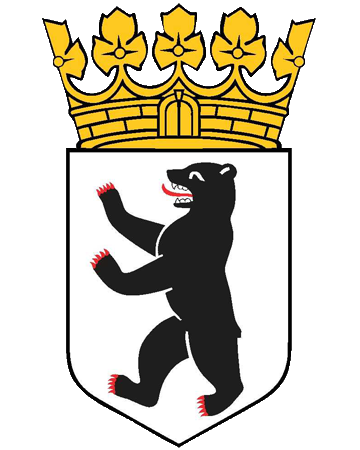
Berlin - and the consequences

When I stood at Tempelhof Airport in mid-May 1969 with my travel bag and 191.60 DM in my pocket that I had earned from slaving for weeks at my hometown’s Jadedienst ship’s store, I knew that there was no picnic lying ahead of me. But what did it matter because I was finally FREE!?! I found lodging on a Kreuzberg factory floor near the famous Kottbusser Tor (Kotti). The residents were people from my hometown who granted me temporary shelter. I got fully involved in the alternative scene and got to know people I had only read about in the newspaper: poets, painters,
So, it was time to get a job. At first, things went pretty well, as my well-connected friends helped me secure one job or another. I remember Boye Kuhlmann’s
At some point, I decided to look for an apprenticeship as a forwarding agent to complete my professional
training. I found what I was looking for at Schier, Otten & Co. After a year, it was done: apprentice of the year! However, I was not interested in a job in the industry. I left Kreuzberg and moved to the Wedding quarter. In September 1970, I became a postman at Post Office Branch 19; later, I was transferred to Branch 12. My goal was to get into second-chance education. With my admission to the Berlin-Kolleg (1972), it was done. I received BAFöG and was able to join the student employment agency TUSMA. Those jobs were well-paid and mostly not too strenuous, such as tutoring and typing theses. In 1974, I graduated from the Berlin Kolleg and began studying geography at the Free University of Berlin (FU). I specialized in tourism and wrote my thesis in Sri Lanka.
I was an untalented student, and it was foreseeable that I would not complete my studies on time – goodbye BAFöG! What to do? What will I live on in the future? I received the answer during my first trip to Southeast Asia: start a trade in goods from Asia! It began at the flea market and ended on Berlin’s Kudamm, where we opened our first shop in 1983. But before that, I had to pass the toughest test of my life. According to the motto: If it rains, it pours! In April 1983, I failed the final examination at the FU. That meant a punitive field trip in the Alps. Additionally, there was the stress of opening the store and an exhausting shopping trip to Asia. When I came back from Asia, my mother had died. To make matters worse, the house I lived in was being renovated. Which meant I had to move temporarily. The most brutal blow, however, was yet to come. My girlfriend, with whom I had stayed for three years, had married someone else during my six-week trip. I was amazed that my house didn’t burn down or that I suffered a severe accident. Hard times in Berlin! At the end of the year, I was back on top again. Never give up! Our shop was booming, especially since we moved to the Bahnhof Zoo. In 1996, I sold my share to my business partners and emigrated to Myanmar.
